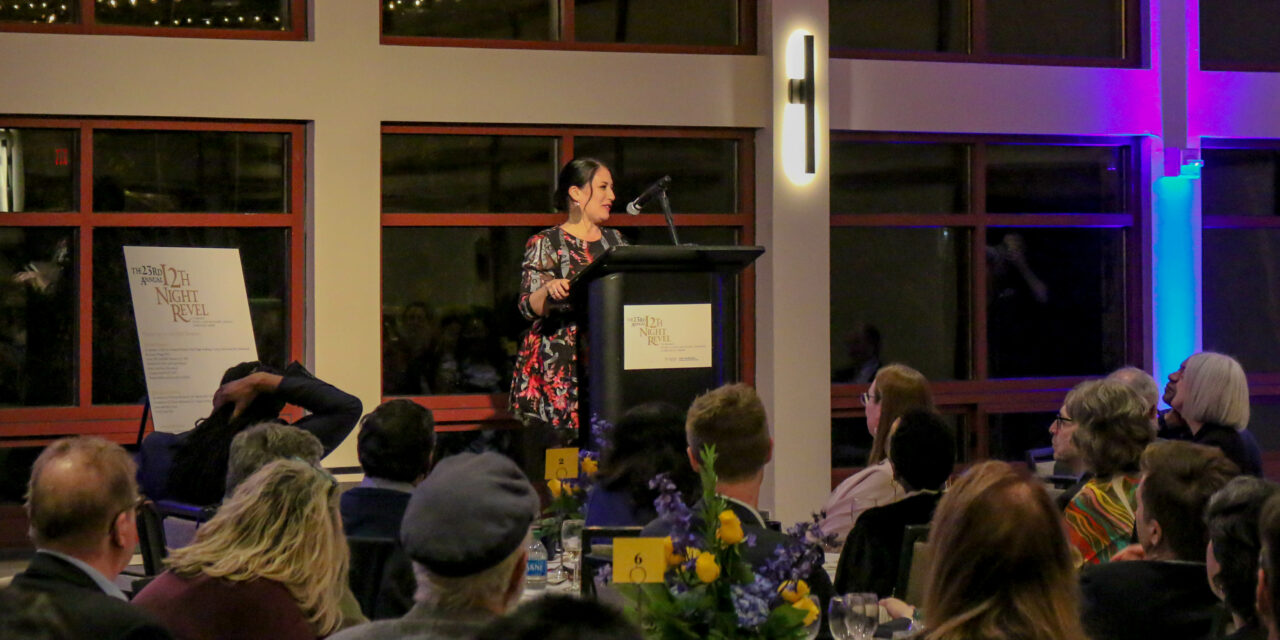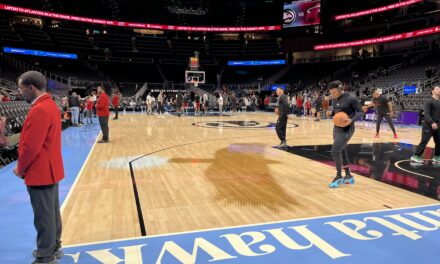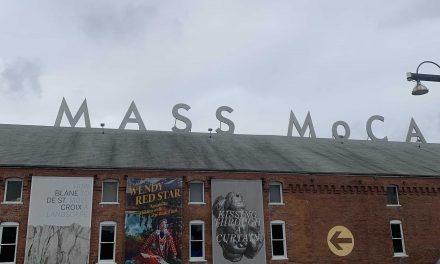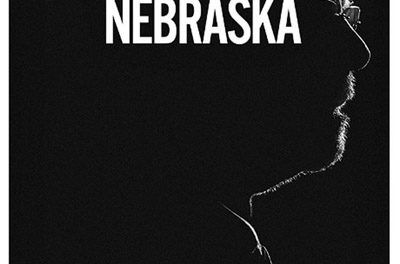Emory University’s Stuart A. Rose Manuscript, Archives, and Rare Book Library hosted the 23rd annual 12th Night Revel on Feb. 10 in the Emory Conference Center. The event began as a way of celebrating the Rose Library and its role in supporting the written word and the donors that contribute to its operation, according to Vice Provost of Libraries and Museum Valeda F. Dent.
Attendees — consisting of undergraduate and post-doctorate students, alumni and professors — had the opportunity to read a poem of their choosing for the audience.
“Over the years this event has blossomed into an event that has had tremendous impact on our community and it’s also given us a way to do community outreach and fundraising for further support for the Rose Library,” Dent said.
The Rose Library includes collections of rare books, archives of civil rights activism, southern history and modern and contemporary literature, that are opportunities for building knowledge. In addition to this, it also contains the manuscripts and journals of famous writers— offering intimate glimpses into the creation of renowned literary works.
This year’s guest speaker was 24th U.S. Poet Laureate Ada Limón, who gave a public reading the following day in Emory’s Glenn Auditorium. Limón opened the event with a love letter to libraries.
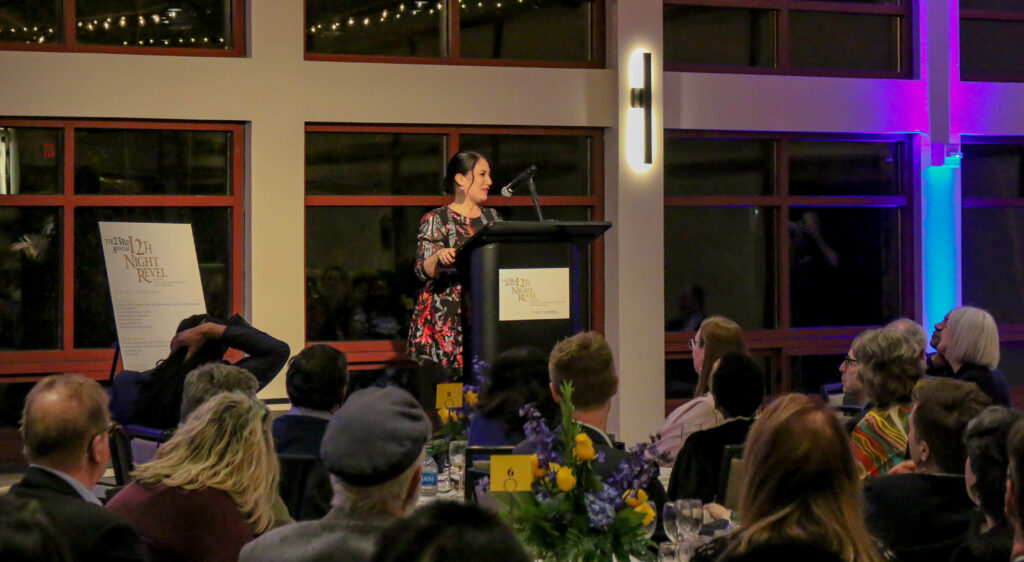
Mila Kocic/Contributing Writer
“I believe so deeply in libraries,” Limón said. “And I believe so deeply in poetry…and to be in this room, to hear people recite and read their favorite poems reminds me again and again that we have to be reminded that we are chaotic and that we’re wild and that we have a full spectrum of human emotions.”
Dent began the event with a recitation of “Hanging Fire” by Audre Lorde, which was followed by a series of speakers, including Provost and Executive Vice President for Academic Affairs Ravi V. Bellamkonda and Rose Library Director Jennifer Gunter King.
Emory University President Gregory Fenves read “Books” by Irish poet Billy Collins. The quiet and stillness of the lines — “from the heart of this dark, evacuated campus/I can hear the library humming in the night —” bring to mind the familiar visual of the Candler library overlooking Emory’s quad, lamps casting a golden glow through the windows.
“As students and scholars and readers, most of us only ever get to meet writers through their published works, and oftentimes that happens in the university – in the library,” Rose Library Director Jennifer Gunter King told the crowd.
Some of these writers can be met in the University’s Raymond Danowski Poetry Library — a collection within the Rose Library that includes 312 collections of poets and writers, including Nobel and Pulitzer prize winners. Those included are Langston Hughes, Salman Rushdie and Sylvia Plath.
Professor Emeritus of Historical and Philosophical Theology David Pacini said that archival research, in addition to a look at textual revisions, gave him insights into “what too often remains hidden in the [writer’s] heart, not to mention buried in the edited page.”
Limón read six poems, beginning with “A New National Anthem.” The poem is a fierce re-looking turned reclamation of the national anthem. The speaker of the poem still has faith in the power of the flag, just that it’s best when “brought to its knees, clung to by someone who has lost everything/when it’s not a weapon.”
Charles Howard Candler Professor of English Jericho Brown applauded Limón’s ability to “search for joy and celebration in every poem.”
“What I love about her poems so much is that the poems are able to admit – quite self consciously within the poems themselves – when she fails to find that joy and celebration,” Brown told the crowd. “And so, that journey of the poem that you are reading becomes the joy of celebration. The fact of the poem is evidence of the joy.”
Additionally, Brown drew attention to the interconnections between humans and nature that fill Limón’s work.
“The natural world is never separate from humankind in her work … and their importance comes together in her work so that we find that joy, we find that celebration, we understand ourselves as one in the natural world,” he told the crowd.
Prior to her appointment as U.S. Poet Laureate, Limón worked in the marketing departments of magazines. In a conversation with the Wheel, she described a contrast between the “play” involved in this type of writing, compared to her poetry.
“Language was a tool, it was play; I wasn’t attached to it,” Limón said of her experience working for magazines. “My poems are everything to me and that’s not play, it’s serious work, even when it’s a serious play. So, a big thing for me was that I did my job and I enjoyed it, but it wasn’t something that was ‘live or die,’ whereas my poems feel so urgent and necessary for me to live, for me to be in this world, that I take them much more seriously.”
Francis Ittenbach, who helped plan the event and curated the show-and-tell for Limón, credited the Rose Library as a major factor in his decision to apply to Emory for post-graduate studies from Trinity College, Dublin.
“It means a lot for me not just as an academic and as a writer and poet myself on the side but just as a person and as a place that cultivates and attempts to propagate the humanities for as many people as it possibly can,” Ittenbach told the Wheel.
Mitali Singh (she/her) (25C) is studying English, creative writing and psychology. Her poems have been published in Eunoia Review and FEED.
She feels most inspired while spending time outdoors and loves immersing herself in different forms of art.

